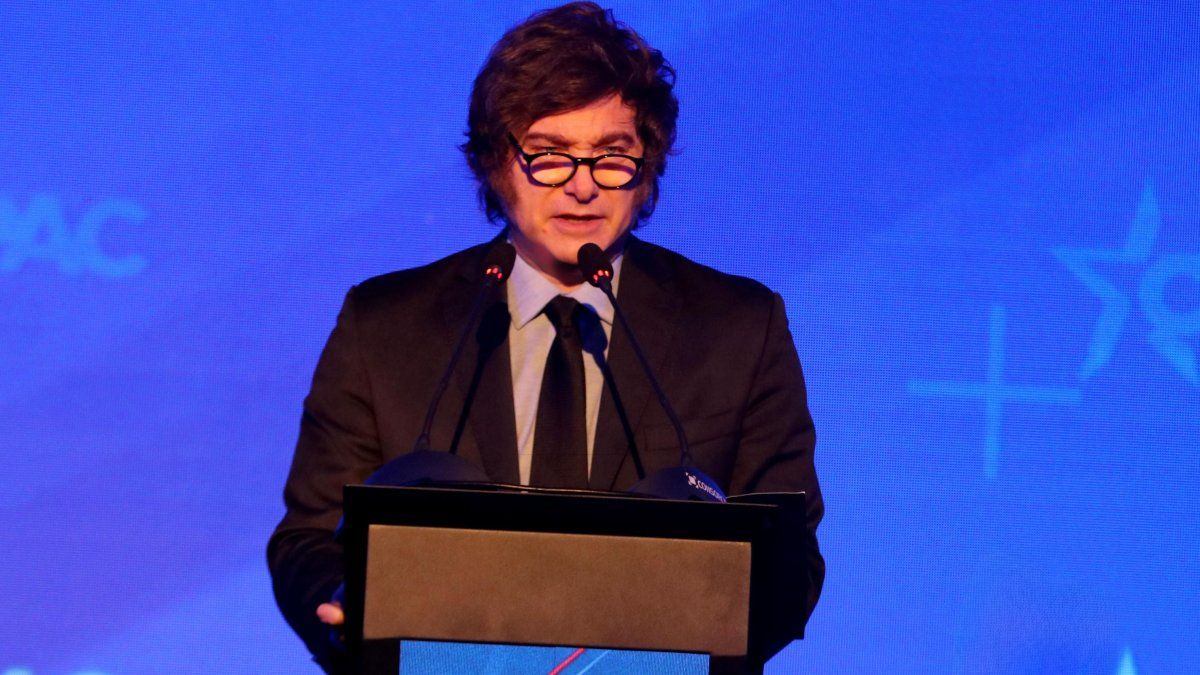Marcelo Mindlin: What we see today are 31 generators of 4.5 megawatts, which is half of the total capacity that we can do in this field and given the infrastructure and the high voltage lines that we have built. So the idea is a second stage of another 31 generators and obviously as the industrial demand is in a free market, it has its time to absorb the new energy, we have to give it time to build the second stage. The important thing is that the area has a great capacity for wind resources, although the evacuation is saturated. We have overcome that restriction by directly raising the power to 500 kilovolts, with the 9 kilometer private line that we built. That will allow us to evacuate the second part when it is done.
Q: What challenge do you see in terms of electrical energy?
MM: The great challenge is the transmission infrastructure and the transformer stations that enter the city of Buenos Aires. In 2005, when we joined Edenor, they indicated that the three transformer stations entering the city were practically saturated. Twenty years have passed and we have not managed as a country to build the fourth transformer station entering Buenos Aires. The challenge is precisely to build a new 500 kilovolt high voltage line, which starts in this area and Patagonia, and the transformer station to enter the city.
Q: In your speech during the inauguration you expressed your support for the Government’s 2025 Budget and its zero deficit policy…
MM: What I said in my speech is that there is an economic policy of reducing public spending, of eliminating the fiscal deficit, and that entails a sacrifice for the entire population, especially the most vulnerable. I also understand that, from what I see in the surveys, there is support for this policy on the part of the population and that as businessmen we have an obligation, a duty, which is to invest precisely to generate employment and activity and make this effort less difficult.
Q: Are the conditions for investment ripe or is there still something missing?
MM: We are investing. Other companies will see how they do it. Vaca Muerta is a boom, all the companies are investing. In the private sector we are building two oil pipelines, one that goes to Bahía Blanca and another that will begin to be built and will go to Punta Colorado (Ed. note to Sierra Grande, Río Negro) to double oil exports. With TGS we also made a private initiative to invest 700 million dollars in gas. I understand that in the energy sector there are investments that are already being made.
Q: Does the dollar restriction affect these investments?
MM: The cepo is more of a problem for foreign companies than for the Argentine sector. We have invested over the last 20 years with and without the cepo. Clearly I do not have a parent company that asks me for dividends in dollars, so I understand that the elimination of the cepo is very important and will enable or permit investments by foreign companies to be greater than they are at present.
Q: And what do you need to move forward with the second stage of the wind farm?
MM: We need industrial demand to absorb this greater supply of energy, and once the contracts are in place we can move on to the second stage. In less than a year and a half, two years, we are starting the second stage. But it depends on economic growth, it depends on industrial demand, on regulatory changes.
image.png
Marcelo Mindlin, president of Pampa Energía, with the mayor of Bahía Blanca, Federico Susbielles, and the secretary of Energy and Mining Coordination of the Nation, Daniel González.
Q: How did you receive the regulation of the Bases law, the latest changes to the Hydrocarbons Law and the approval of the RIGI? Do you think that it will give another boost to investments in Vaca Muerta?
MM: Yes, it will give another boost. I can talk about the energy sector, but I also understand that there are very large investments in mining and other sectors. There is an investment boom, all oil and gas producers are not only investing in wells, but also participating in infrastructure that allows the evacuation of that oil and gas. The RIGI accelerates these investments in the energy sector, in Vaca Muerta and in other sectors, it is a factor that will dynamize and accelerate these investments.
Q: You gave an encouraging message for businessmen to invest…
MM: The message I gave to the entrepreneurs is that we as entrepreneurs in Pampa Energía and TGS are very happy and proud to continue investing. We feel that just as we accompany the community in educational programs or as happened with the storm in Bahía Blanca (Editor’s note: they assisted the Bahian commune with more than $1.5 billion)we believe that we are fulfilling our role.
image.png

Pampa Energía inaugurated the company’s sixth wind farm in Bahía Blanca.
Q: Do you have any plans to improve the evacuation of gas and oil from Vaca Muerta?
MM: We are studying all of them and some are in the preliminary stage. There is a project, a private initiative, by TGS that is already public, which is to invest US$700 million to increase the transport capacity of Neuquén by 14 or 15 million cubic meters of gas per day. Then we have projects for the processing of gas in Tratayén by TGS, and we are in the large oil pipeline that is being led by YPF (Vaca Muerta Sur).
Q: In Vaca Muerta Sur they enter with 10%, why not more participation?
MM: Because this is a project of such a quantity that with 10% we satisfy our transportation needs. And 10% gives you a position on the board of directors. It is a project that is being led by YPF, a very good job. We as producers support it, and obviously all the producers support it because they need that transportation capacity.
image.png

The new wind farm has an installed capacity of 140 MW, equivalent to the consumption of approximately 200,000 homes.
Q: What did you think of the presentation of the 2025 Budget?
MM: It was a presentation of the basics, rather than the Budget. (President Javier Milei) presented very solid concepts of fiscal balance at all costs. We believe that this will generate a drop in country risk, and therefore, it will be easier to obtain financing.
Q: And what did you think of the inflation or exchange rate targets?
MM: We have invested in all budgets over the last 20 years. Some were well done, some were not.
Q: Are you thinking of getting into the LNG business? Is the proposal to build a scalable onshore plant still on the table?
MM: We realized that small modular projects are very expensive and inefficient, so we are going to analyze whether to join any of the other liquefaction projects.
Q: Could it be the PAE one with the Norwegian firm Golar?
MM: We will analyze all those who are turning around and we will make a decision.
Q: You mentioned a reduction in country risk. Do you believe it is essential to have stability in the coming years in order to have better business activity?
MM: Obviously, because at some point the country has to issue sovereign debt to be able to pay the capital maturities, which is why the Government itself has said that although in 2025 all its needs are covered, at some point, from the beginning of 2026, it has to go out to the international credit market. The fall in country risk makes sense, it is crucial. The Government says that it has the dollars in the Central Bank to pay the maturities.
Q: You recently went to the market, is it accessible?
MM: Pampa has just placed a bond that paid 8.25% in 2031, which is seven years. Therefore, the private sector is already having access to credit. The truth is that companies like Pampa, which have been financing themselves since 8 and a bit, show that if one has a track record and credit, one can access the capital market and finance these investments.
image.png

Marcelo Mindilin with a group of students and scholarship holders from Bahía Blanca who are receiving professional training with Pampa Energía programs.
Q: Do you have any particular interest in mining projects?
MM: We have a copper deposit in Mendoza, which is very preliminary, we have just started exploring, so we have no idea if there is a viable project there or not. We are in the super exploratory stage.
Q: What expectations are there in the private sector about working with the public sector?
MM: The expectation is precisely that state intervention will decrease and leave us with a clearer path to make investments, which is what is happening. For example, we presented a private strategy (for the TGS project). Now the Government has to take that private strategy and turn it into a document, make a tender so that all the companies that want to compete and bid can participate. We can kick off the process, but we need the Government to take up the challenge and make the tender. TGS stopped paying dividends, we are investing everything we generate, we are reinvesting in the country as in private needs.
Q: Based on the budget data, it does not seem that the State will be taking much of a step back in withholding taxes. What do you expect?
MM: It is more a question for economists, but the taxes on oil and gas are much lower than in the countryside, they have a different effect. Obviously they are not good, but they are not like the 33% in the agricultural sector. I do not believe in the possibility of them being raised in order to meet the numbers.
Source: Ambito
I am an author and journalist who has worked in the entertainment industry for over a decade. I currently work as a news editor at a major news website, and my focus is on covering the latest trends in entertainment. I also write occasional pieces for other outlets, and have authored two books about the entertainment industry.




